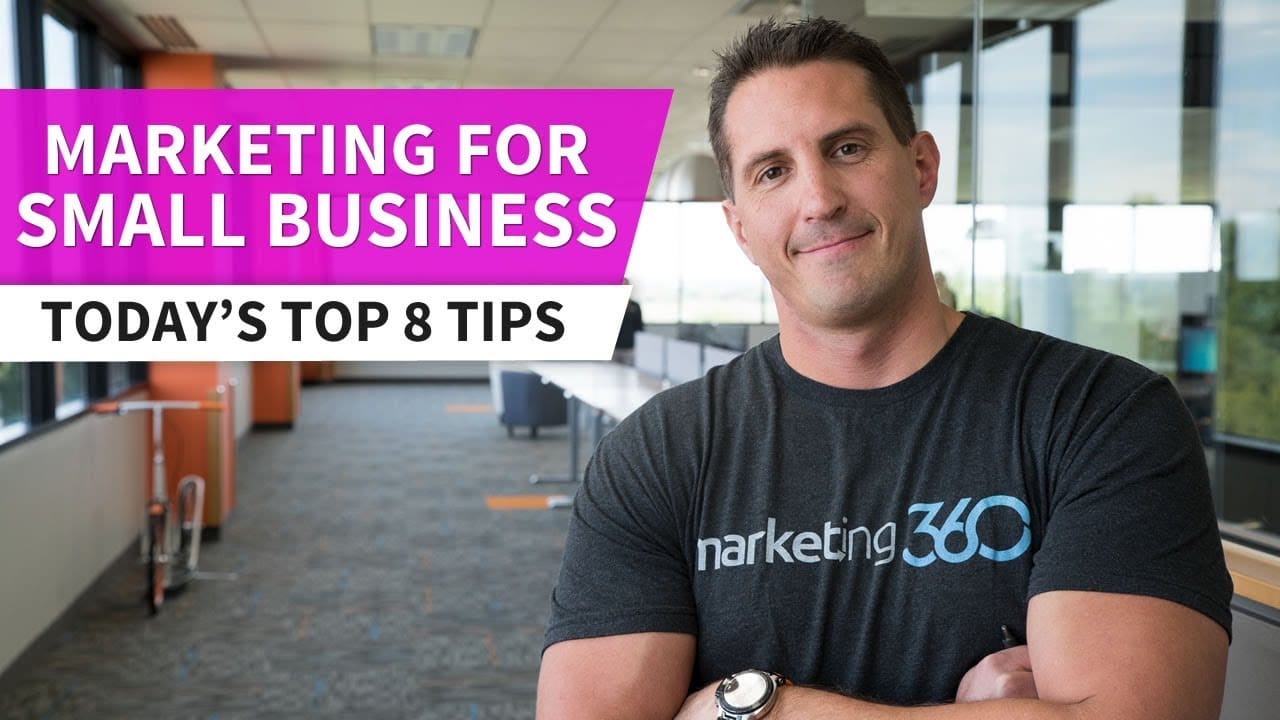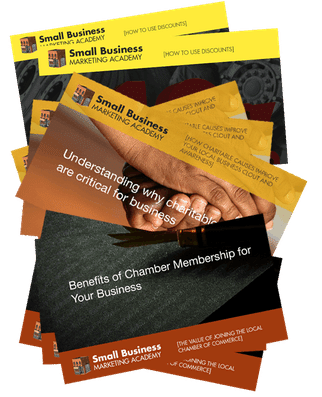

- Directory
- Recent
-
Featured
-
Featured
- Recent
-
21st Century Business Essentials Engaging with Online Communities
by Ashley Wells | Jul 16, 2025 | 0
-
- Programs
- Digital Nomad
- Side Gigs
- Resources
Select Page
10 people find this post amazing!

I’ve had my fair share of experience in the small business space and thought I would open up about some of my tips. Thank you Google Ads Smart campaigns for sponsoring today’s video.
In this video, we break down digital Marketing for Small Business, today’s 8 Tips For Small Business!
Marketing for small businesses is key to success. Without a strong marketing strategy, even if you have a great product or service, you will not reach your potential.
1) Build a highly convertible and professional website (mobile-first)
2) Get on page #1 of Google 3 times for your best search terms.
– Optimize your site for organic search & build an ongoing SEO/Content marketing strategy.
– Run paid search ads for the best inbound search terms
– Optimize Google My Business & capture Google Reviews
3) Get Listed & Optimize Local Listings & Directories
4) Invest in Reputation Management
5) Build your presence on Social Media!
-Social Media Management
-Social Media Advertising (boost content)
6) Use Email Marketing & SMS / for leads – experience, trust/reviews, process, educate & for customers – to capture reviews
7) Run retargeting ads on Google display network, youtube, Facebook, and Instagram
8) Post videos to YouTube answering questions around your subject matter. Run retargeting ads on YouTube.
Bonus Tip – Use an all-in-one marketing platform that has both the talent & technology you need to succeed.
Conclusion – Thanks for watching. If you found this content helpful please take a second and like, share and comment. Also, make sure to follow us for more great content just like this down the road or text “marketing” to 39970 to opt into our weekly marketing tip text messages. Happy marketing!
Marketing is expensive. There’s no getting around that fact.
Undeniable fact number two: Marketing is also necessary.
If you want your B2B business to grow, you absolutely need to invest in marketing it in some way. Word of mouth is great, after all, but it’s often not enough on its own. Even if it would be eventually, you need a lot of momentum and a lot of customers for word of mouth to be significant enough to be sending you the number of new customers that you need.
This poses a challenge for small businesses who are on a shoestring budget, which many are. It costs a lot to operate a business and because of the price tags and the overwhelming number of options that it involves, marketing is sometimes what ends up getting skipped.
The good news is, we’ve got the solution, and in this post, we’re going to take a look at 8 different small business marketing tips to help you get the results you want without breaking the bank.
Business cards give you a quick way to exchange information and they can lend some credibility and professionalism, too. You can meet potential clients, vendors, or even employees pretty much anywhere, so you want to be prepared.
I can’t tell how many times I’ve been out somewhere and meet someone who needs a copywriter or content marketer, but I can tell you that my business cards have paid for themselves many times over. I always have a few stashed in my purse because I’m often introduced at get-togethers to people as “she ghostwrites books” or “she blogs for a living,” and many small business owners will find that the same will be true for them.
People ask about what I do, and about 10% of the time they’re in a position where they need a content marketer/copywriter/editor. I give them my card, and they get in touch within a few days.

Not only are business cards a cost-effective small business marketing tactic, but they’re also a great way to find leads that you also have a personal rapport with.
Business cards are one thing you can afford to invest in fully (don’t forget, they count as a business expense come tax time!). I recommend MOO, and to go big with some of their fancy options.

Make sure it matches your branding and ideally have your name, phone number, website, and social profiles (if applicable) attached. B2B businesses should include their LinkedIn profile if they’re active there.
This ties in a lot with the business card strategy, but it works online and in person. Leverage your network for all it’s worth (without being obnoxious) and you’ll see much better results.
Your network already knows and hopefully trusts you. Reaching out and letting them know that your business is open and what you can do for them is all that’s needed. This can be effective even if it’s a single Facebook post letting your friends know about your goods and services.
People who know you most will be most likely to check it out and they may even tag some of their friends who need the services you offer. There’s a huge audience out there who needs your services, after all, and a recommendation from a friend can help you find each other.
Notice that I don’t say “start a referral program.” It’s the same kind of idea, but my phrasing is intentional here. Most small businesses don’t have the money to set up an expensive online referral system with custom links and tracking and automatic payouts.
Instead, you can let your current clients know that if they send you a referral that turns into a customer, you’ll give them 10% off your next invoice. I offer this to my clients when I’m actively taking on new clients and I always make sure to send out email reminders of this perk if my schedule is looking a little slow. I even send emails to past clients who haven’t hired me in a while and the discount (and just getting in touch) would often result in them hiring me for another project.
Partnering up with other small businesses—officially or unofficially—is a great way to go. This could be a vendor, but it could also be other businesses in complementary industries that share a target audience with you. For brick-and-mortar businesses, this would probably mean sticking to other businesses nearby.

Partnerships and collaborations can be flexible. Different strategies you could use include:
Content marketing is mostly free (unless you outsource it) and it allows you to rank for more keywords, keep your site content fresh, establish expertise and offer valuable information to your target audience. It also shows that your business is actively up and running to new customers—which is always a plus—and that you’re invested in them.
Your on-site blog should be updated consistently and regularly. Blog posts should have a goal in mind, like getting users to subscribe to your email list or get in touch with you to ask about a product or service mentioned in the post.

You can also move the content marketing strategy of your own site and onto someone else’s. Pitch sites where your target audience will read your work. Don’t turn your post into a sales pitch, because publications will never accept it, but know that you can often have one link to your own content in the post and a link to your site in your bio at the end.
When guest posting, get creative.
If you’re a florist, for example, you don’t just want to write for magazines for florists. Write a post for a wedding magazine about how to choose a bouquet that matches your wedding. Then write a post on a site that deals with organizing a funeral after a loved one has passed and written about appropriate and symbolic flowers that match the family’s budget. This is how you’ll most effectively connect with your target audience.
All those emails you’ve managed to capture through blogging, social media contests, and past purchases? Don’t just neglect them. Use email marketing campaigns to stay in touch with your audience, leads, and customers both included.

Your email marketing can help to nurture relationships with customers and solutions like MailChimp are affordable for small businesses to use. You can send out a few emails a month, or set up triggered autoresponder campaigns like the following:
If you want to get new clients quickly, offering discounts, giveaways, or free trials to 8 Tips For Small Business leads is a great way to drive some conversions. This presents a low-risk, high-reward situation for them, where they have everything to gain and nothing to lose. They don’t have to worry about you disappearing after they make that first down payment, or paying too much for glitchy software that doesn’t actually work.

You know your product or service is good, this can help you show other users, too. 8 Tips For Small Business.
 A lot of businesses list these benefits on the homepage of their site or within the first few emails in order to grab users while you still have their interest and before they move on to someone else. Make sure to always specify that it’s for first-time customers only, or it’ll chew 8 Tips For Small Business a hole in your pocket quickly. Read more. Click here!
A lot of businesses list these benefits on the homepage of their site or within the first few emails in order to grab users while you still have their interest and before they move on to someone else. Make sure to always specify that it’s for first-time customers only, or it’ll chew 8 Tips For Small Business a hole in your pocket quickly. Read more. Click here!
“Good content isn’t about good storytelling. It’s about telling a true story well.” – Ann Handley
”If we face the truth, we know that content marketing is about making money”– James Allen
“Content marketing is more than a buzzword. It is the hottest trend in marketing because it is the biggest gap between what buyers want and brands produce.” – Michael Brenner
”If we face the truth, we know that content marketing is about making money”– James Allen
Learn More about the Academy here: Click Here Now!
The Crucial Constructs Academy is a Free Video Training Course Available only to our Readers and Subscribers. A thorough and detailed training available to you. Find out more about it here. Click and Learn
Table of Contents

Achieve Your Goals Now!
